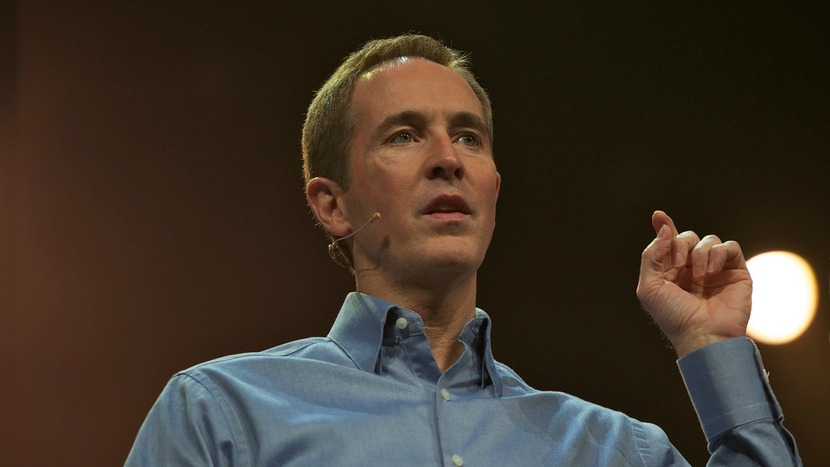It's time to stop saying, "the Bible says." At least that's what Andy Stanley says.
At Exponential, a church-planting conference attended by 5,000 in late spring (with another 20,000 watching via video), the senior pastor of North Point Community Church in Alpharetta, Georgia, said pastors should instead use phrases like "Paul says" and "Jesus says" when citing Scripture.
Stanley (who also made the case in his 2012 book Deep & Wide) told CT the main reason for his injunction is "to keep people who are skeptical of the Bible's authority engaged in the sermon." It's a question of evangelism, not theology, he says. "The goal is to lead [people] to the place where they acknowledge Jesus to be who he claimed to be. They don't have to believe Noah built an ark and put animals on it to get there. … To get a person to the point where they believe the Bible is authoritative, they first have to believe that Jesus is the Son of God. The reason Christians take the Old Testament seriously is because Jesus did."
But Stanley adds that the approach has "helped Christians in our congregation have a greater appreciation for the historicity of the New Testament, that these were actual people who said these things." (An edited transcript of our interview with Stanley appears today on our website.)
It's hard to know how many preachers today use "the Bible says" rather than more specific citations. But Paul Gutjahr, professor of American and religious studies at Indiana University–Bloomington, said the phrase "gained its popularity in the early 20th century with revivalists like Billy Sunday and later Billy Graham."
Grant Wacker, professor of Christian history at Duke Divinity School, said Graham probably copied the phrase from one of his professors at the Florida Bible Institute. "He was very conscious about what they did and why they did it," said Walker. "Graham would hold up the Bible and say, 'the Bible says,' because he sensed the Bible's authority in American culture, and it resonated with his hearers."
A 2014 State of the Bible study conducted by Barna Group and the American Bible Society reported that half of American adults believe the Bible is a valuable resource for living well. According to the study, 80 percent of practicing Protestants, 60 percent of practicing Catholics, and 50 percent of the general public believe the Bible contains everything a person needs to know to live a meaningful life.
Barna vice president Roxanne Stone said that for participants who affirm this, "hearing a pastor point to it would likely add credibility to the statement." However, "younger generations are less likely to view the Bible this way," she said. Just over a third (35%) of "Millennials" (ages 18–29) believe the Bible contains everything a person needs to know to live a meaningful life, compared with 49 percent of "Busters" (ages 30–48), 55 percent of "Boomers" (ages 49–67), and 63 percent of "Elders" (68 and older).
CT asked experts if pastors should stop using phrases like "The Bible says" in their sermons. Answers to the question are arranged below on a spectrum from "yes" at the top to "no" at the bottom.
"Many preachers use 'the Bible says' too glibly, using proof texts out of context or as shorthand for 'trust me on the point I'm making.' Rather than tell people what the Bible says, preachers should show people what it says. A math teacher doesn't help her students if she simply gives them the answers. Instead, she shows them how to solve the problems themselves. Preachers should show their congregations how to properly interpret the Bible." ~ Krish Kandiah, executive director, Churches in Mission at the Evangelical Alliance UK
"It is better to demonstrate the authority of the Bible story by story, theme by theme, name by name, verse by verse, than to just assert its authority. If a listener's hackles go up at the mention of 'The Bible says,' then the preacher may have lost at the outset. But if listeners are captured by a startling story from Jesus, a bold claim by Paul, or an intricate argument from John, then little by little they drop their guard and open their heart, until one day they find their whole world turned upside down." ~ Mark Buchanan, professor of pastoral theology, Ambrose Seminary
"Paul was faithful to Christ and Scripture while immersing himself in the culture of the people he was trying to reach. The approach Stanley advocates models the same dual commitment. When we require ourselves to say to people who don't yet trust the authority of Scripture that 'the Bible says,' we are arguing from our own frame of reference and not starting from theirs. We must argue to and not from our basis of authority, if we are to be all things to all people so that by any means some might be saved." ~ Rick Richardson, director of Evangelizing Churches Project, Billy Graham Center
"Jesus often attributed passages to individual authors like Moses and Isaiah, but he also introduced passages with phrases like, 'It is written' or 'Have you never read in the Scriptures?' Both formulas are legitimate. But Stanley's reasoning is unsettling. It suggests unbelievers can't relate to 'the Bible says' because that phrase grants equal authority to all parts of the Bible. This thinking inevitably leads to a canon within the canon. We should counter the suggestion that Genesis is less reliable than Matthew." ~ Hershael York, professor of preaching, Southern Baptist Theological Seminary
"The Bible speaks with a rich array of voices, and I generally highlight that in my sermons by using phrases like 'Paul says to the Corinthians.' But we also must worry about American individualism and subjectivity. Part of being a Christian is submitting to the rich, ancient, seemingly disordered, multivalent collection of writings called Scripture. Personal experience is the only revelation many people trust these days. For Christians, however, there is no 'Paul says' apart from what Scripture says." ~ Will Willimon, professor of Christian ministry, Duke Divinity School










